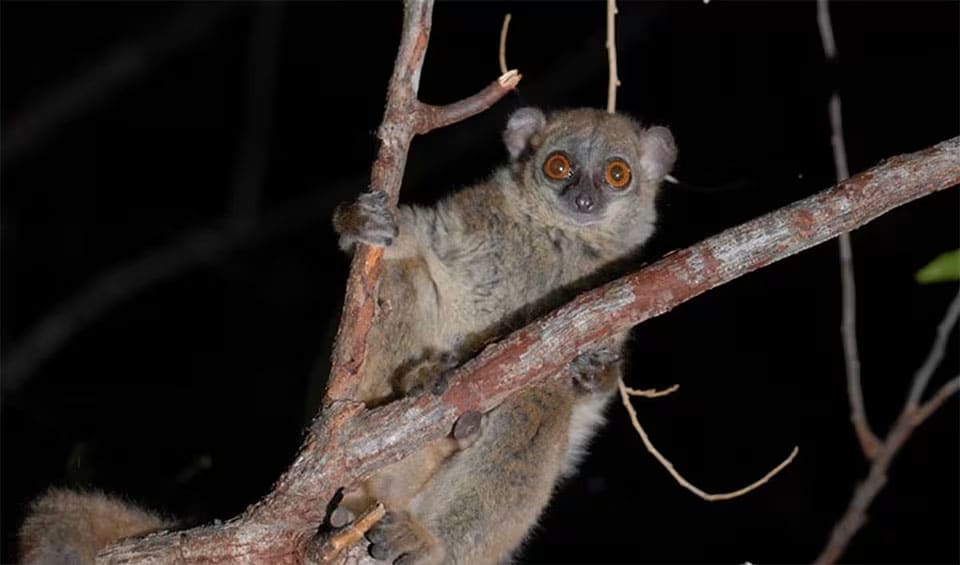A fascinating and critically endangered species of lemur found exclusively in the northern regions of Madagascar. This small, nocturnal primate is part of the sportive lemur family, so named for its agile and acrobatic movements when leaping through the trees.
The fur of the Northern sportive lemur is thick and woolly, providing insulation against the cool nights of its forest habitat. The coloration varies from light to dark brown, often with a reddish tinge on the back and a more subdued, sometimes grayish color on the underparts. A notable characteristic is its large, expressive eyes that enhance its night vision, which is crucial for its nocturnal lifestyle.
One of the most intriguing aspects of the Northern sportive lemur’s behavior is its territorial nature. Both males and females establish territories that they defend vigorously against intruders. This is somewhat unusual among lemurs, many of which have more social, group-based structures. The Northern sportive lemur uses vocalizations to communicate and maintain territory boundaries, with a repertoire that includes grunts, clicks, and more complex calls that can be heard during the night.
Diet-wise, the Northern sportive lemur is primarily folivorous, meaning its diet consists mostly of leaves, although it may also consume fruits, flowers, and bark to supplement its nutrition. Its digestive system is highly specialized to handle the tough, fibrous material of leaves, which many other animals would find indigestible. This specialization allows the Northern sportive lemur to exploit a niche in its environment for which few other predators compete.
Distribution
 Madagascar
Madagascar Official estimate
Official estimate
Anything we've missed?
Help us improve this page by suggesting edits. Glory never dies!
Suggest an editGet to know me
Terrestrial / Aquatic
Altricial / Precocial
Polygamous / Monogamous
Dimorphic (size) / Monomorphic
Active: Diurnal / Nocturnal
Social behavior: Solitary / Pack / Herd
Diet: Carnivore / Folivore / Omnivore / Piscivorous / Insectivore
Migratory: Yes / No
Domesticated: Yes / No
Dangerous: Yes / No




